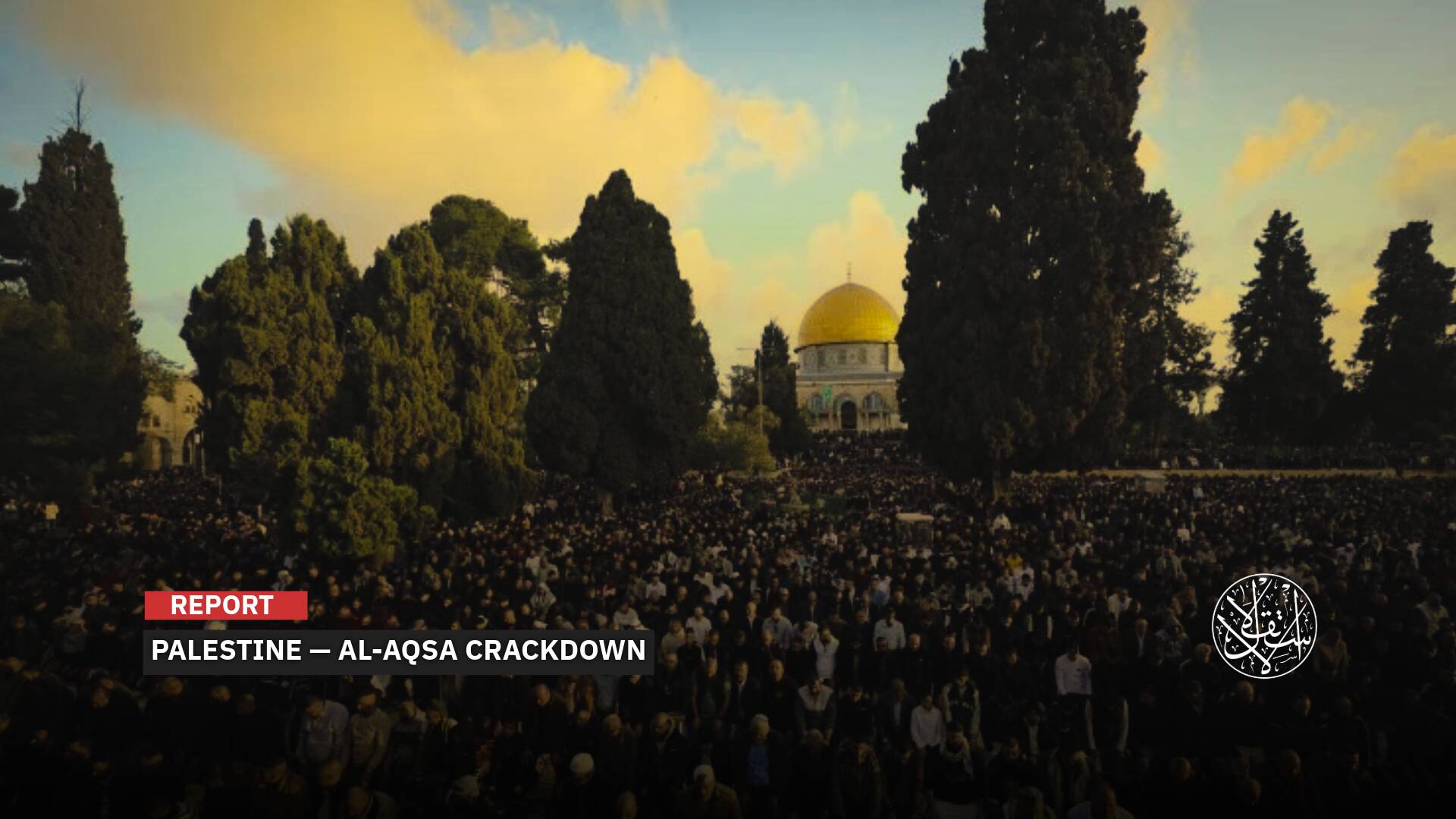How Will Baghdad Respond to Netanyahu’s Threats Against the Factions?
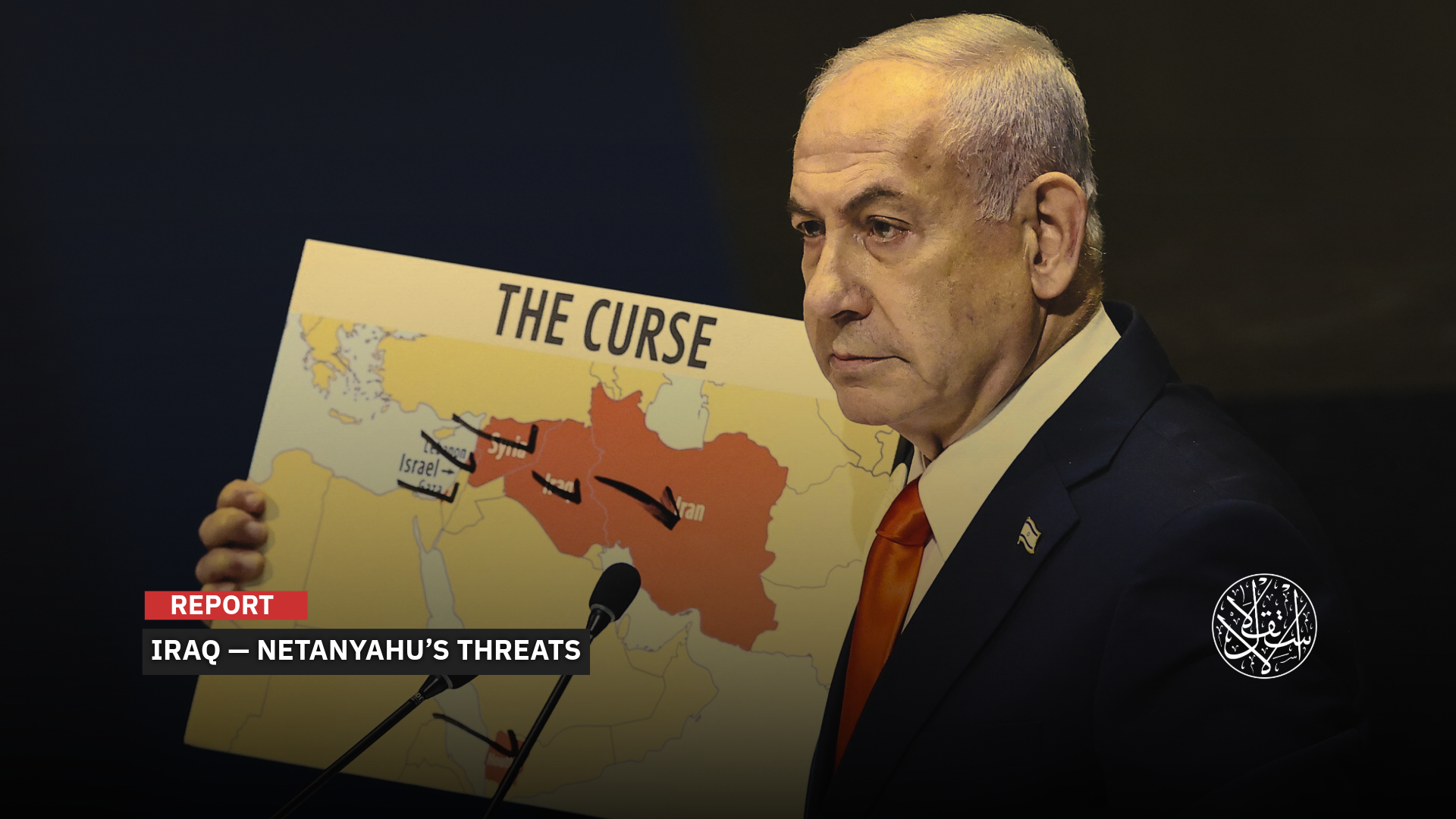
Israeli plans for any escalation against Iraq would begin with strikes on infrastructure and facilities, then move to targeted assassinations.
Israeli Prime Minister Benjamin Netanyahu’s threats to target leaders of Iraqi factions have raised questions over whether his remarks signal a real danger or are merely for political show—and how Baghdad will respond.
In his address to the UN General Assembly on September 26, 2025, Netanyahu claimed that “Israel” had deterred the factions in Iraq and warned that if they acted otherwise, he would eliminate them. This was his first public threat since the events of October 7, 2023.
The PMF Threatens
Amid Netanyahu’s threats, Iraqi Foreign Minister Fuad Hussein said at a press conference in New York the same day that such remarks were “unacceptable,” stressing that any attack on an Iraqi would be considered an attack on Iraq itself.
In response, Popular Mobilization Forces chief Falih al-Fayyadh said during a forum hosted by the Nineveh Council on September 27 that Netanyahu has crossed all red lines and international law and has become a challenge to the countries of the region.
“We are not under Netanyahu’s rule or anyone else’s,” he added. “Iraq has the means, allies, and friends to respond to any aggression. We will not shy away from threats or the use of force and are bound to defend our country.”
Hussein al-Moussawi, spokesman for the Nujaba faction, dismissed Netanyahu’s remarks as “an empty threat to the resistance,” warning, “Our options remain open, and they have already tasted our strength when our rockets and drones struck their most sensitive sites,” according to Shafaq News on September 26.
Since mid-December 2024, the Iraqi factions known collectively as the “Islamic Resistance in Iraq” have halted attacks on Israeli Occupation targets in the occupied Palestinian territories after previously carrying out about 25 strikes a week.
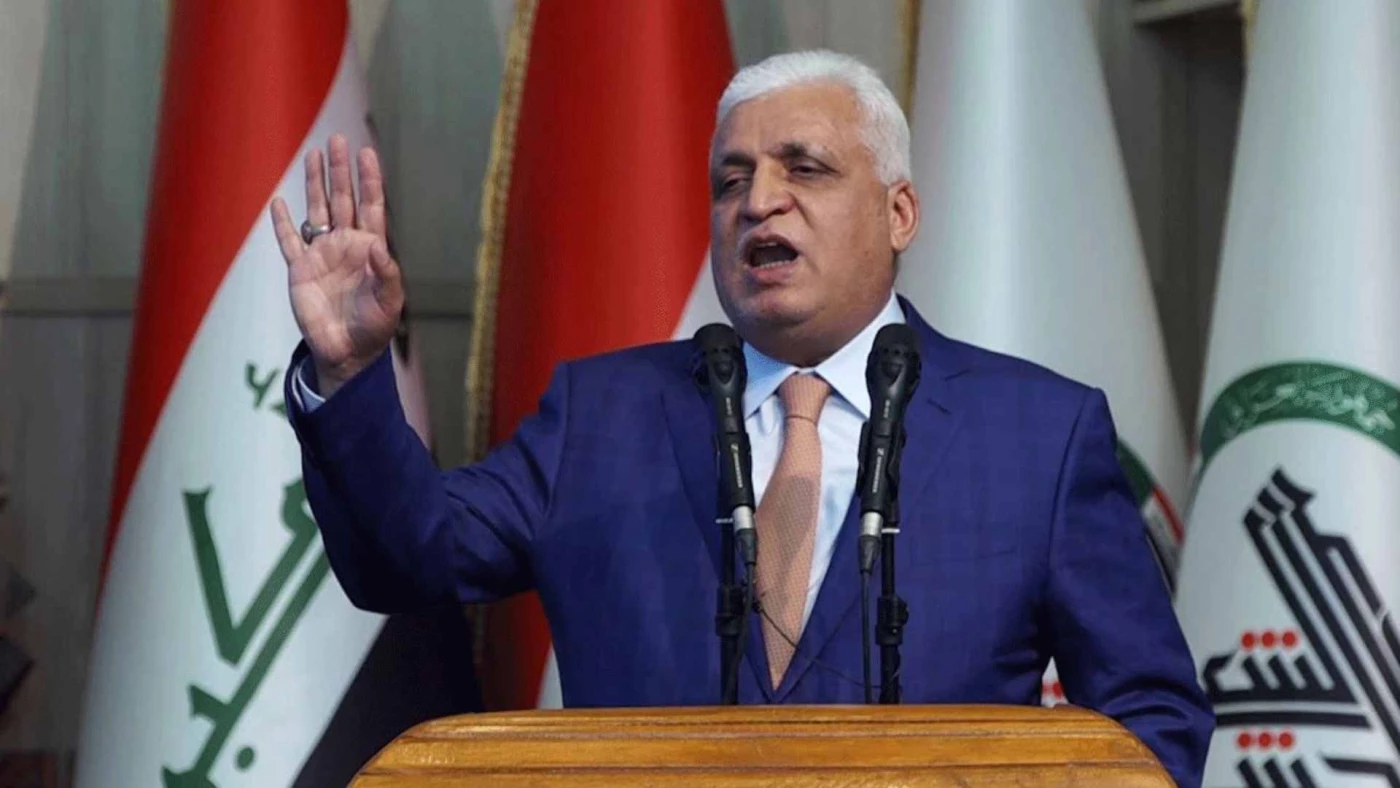
Iraqi Prime Minister Mohammed Shia’ al-Sudani revealed that his government had thwarted 29 attempted rocket and drone attacks targeting “Israel” and U.S. forces in Iraq, noting that Baghdad had engaged Tehran in talks to urge restraint and avoid escalation with “Israel.”
Speaking to the Associated Press on July 29, al-Sudani said he had worked to keep Iraq neutral during “the heightened military confrontation between Israel and Iran,” using a mix of political and military pressure to prevent Iran-aligned factions from intervening in the war.
“We know that the [Israeli] government had a policy—and still does—of expanding the war in the region,” al-Sudani said. “Therefore, we made sure not to give any justification to any party to target Iraq.”
Earlier, Iraqi Foreign Minister Fuad Hussein stated that the leaders of the armed factions had pledged to Prime Minister al-Sudani that they would refrain from any moves that could trigger a strong retaliatory response against Iraq.
In a televised interview aired by Iraq’s state broadcaster on March 18, 2025, Hussein added that the United States played a key role in preventing an Israeli response and strikes on Iraq.
He noted that Washington had made it clear that halting attacks launched from Iraqi territory was essential for it to pressure others not to target Iraq, stressing that continued U.S. support depended on maintaining internal security and military calm.
Deterrence Through Fear
Commenting on Netanyahu’s recent threats, Iraqi political analyst Ali al-Massari said that the Israeli prime minister aims to carry out strikes in Iraq targeting groups he considers a threat to “Israel,” particularly those linked to Iran. However, he suggested the current rhetoric may be intended more as pressure than a genuine plan of action.
“Iraq does not possess the kind of power Iran wields; Tehran responded with ballistic missiles to Israeli attacks, yet its skies remained under Israeli control throughout the 12-day war between the two sides. How, then, can Iraq respond when it lacks control over its own airspace and has no weaponry capable of striking the occupied territories?” he told Al-Estiklal.
The Israeli Occupation had launched an aggression on Iran on June 13, 2025, killing dozens of senior military officers and nuclear scientists. Tehran retaliated with heavy missile barrages against Tel Aviv, after which Washington struck Iranian nuclear sites before a full cease-fire was declared 12 days after the war on the Islamic State.
Al-Massari noted that the Iraqi government’s only real leverage is to pressure the factions not to launch attacks on the occupied territories, especially if “a new war breaks out between Israel and Iran,” suggesting that Netanyahu’s threat may be a warning to deter any Iraqi involvement in the event of renewed hostilities.
Iraqi security expert Saif Raad said Netanyahu is seeking to intimidate the factions by claiming they could be targeted at any moment, noting that his remarks about having managed to deter them point to previous Israeli attacks, such as “airstrikes or intelligence operations,” that had curbed their activities.
Speaking to the Iraqi outlet Aljeebal on September 27, Raad explained that “the deterrence Netanyahu claims relies on fear; fear he claims to have instilled in the leaders of these factions, which has made them hesitant to launch further attacks on ‘Israel’ or its interests.”
Regionally, Raad added, Netanyahu’s statements align with a broader Israeli plan to dismantle Iran’s regional network, with Iraq seen as a key node of influence through its allied factions. Thus, singling out Iraqi factions in his speech means they remain under constant surveillance and could be targeted at any time.
Diplomatically, Raad said, the threat is reinforced by U.S. pressure, as Washington has designated these factions as terrorist organizations, limiting their access to financial and military support.
On September 16, the U.S. State Department announced on its website that it had added Iran-backed Iraqi factions—including Harakat al-Nujaba, Kata’ib Sayyid al-Shuhada, Harakat Ansar Allah al-Awfiya, and Kata’ib Imam Ali—to its list of Foreign Terrorist Organizations.
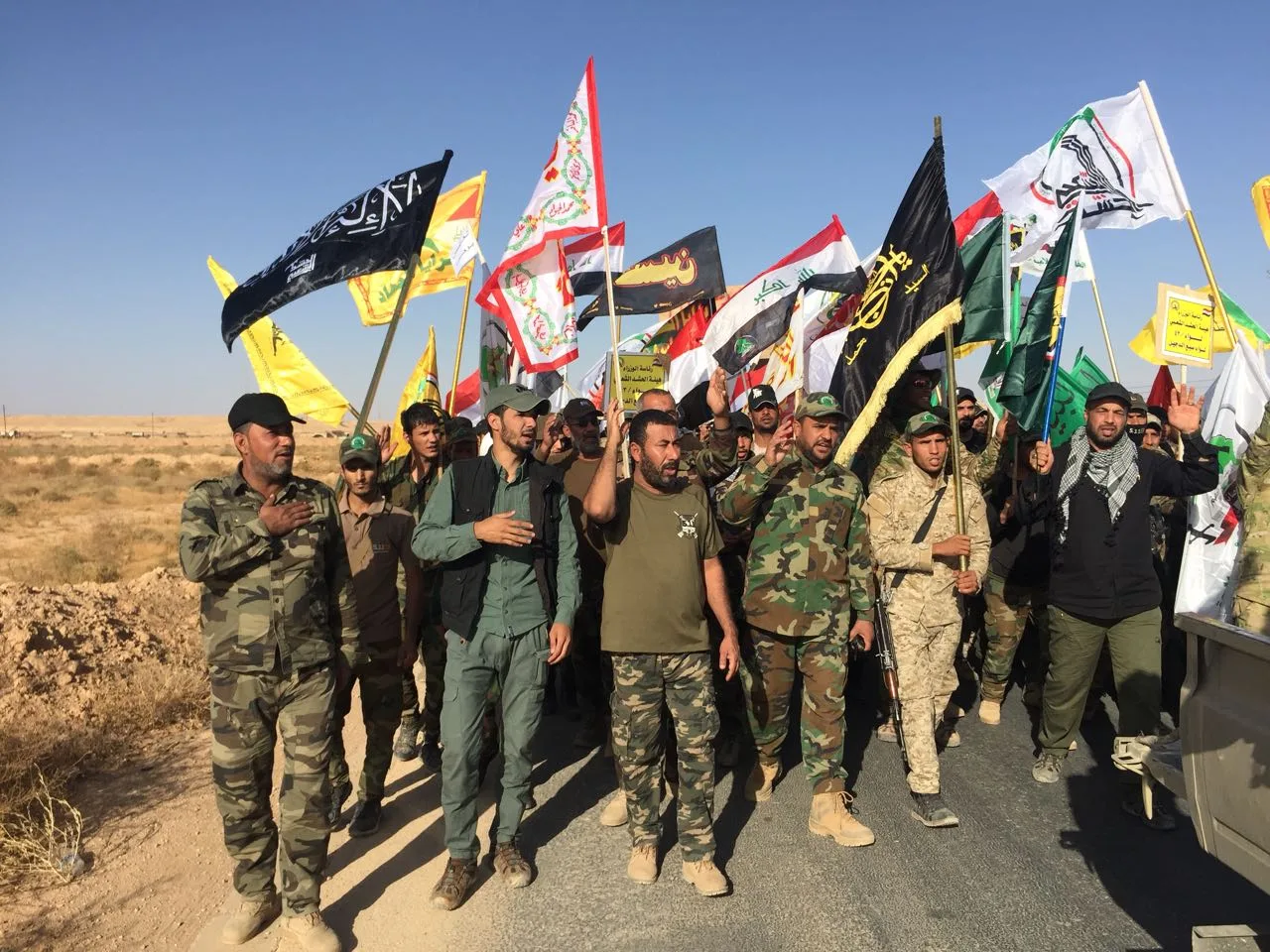
A Green Light
Following Netanyahu’s threats to attack Iraqi factions and assassinate their leaders, Radio Monte Carlo International reported on September 27 that these groups immediately began taking precautionary measures, including evacuating key sites and having their leaders abandon their mobile phones.
According to the report, the protective measures also extended to prominent political figures within the Shiite Coordination Framework—the largest political bloc in Iraq’s government—including Hadi al-Amiri, leader of the Badr Organization, and Nouri al-Maliki, head of the State of Law Coalition, amid fears they could be targeted by “Israel.”
Iraqi security and political channels assessed Netanyahu’s threats as either an attempt to secure a green light from Washington to launch attacks on the factions and assassinate their leaders or as an effort to coordinate such “actions” directly with the Americans.
Earlier, on July 26, 2024, Israeli Prime Minister Benjamin Netanyahu held up two maps at the UN podium—labeled the “Map of Blessing” and the “Map of Curse”—placing Iraq in the latter category alongside Iran, Lebanon, and Syria, all marked in black.
On November 19, 2024, Israeli Foreign Minister Gideon Sa’ar blamed the Iraqi government for “everything happening on its territory,” stressing that Tel Aviv had the right to defend itself.
In a statement that evening, Sa’ar said he had sent a message to the President of the UN Security Council urging “immediate action regarding the Iran-backed militias in Iraq,” which he claimed were using Iraqi soil to attack “Israel.”
He added that the Iraqi government bears full responsibility for activities on its territory and that “Israel” reserves the right to defend itself, as enshrined in the UN Charter, to protect its citizens.
Sa’ar further called on the Security Council to act urgently to ensure that the Iraqi government fulfills its obligations under international law and halts these attacks on “Israel.”
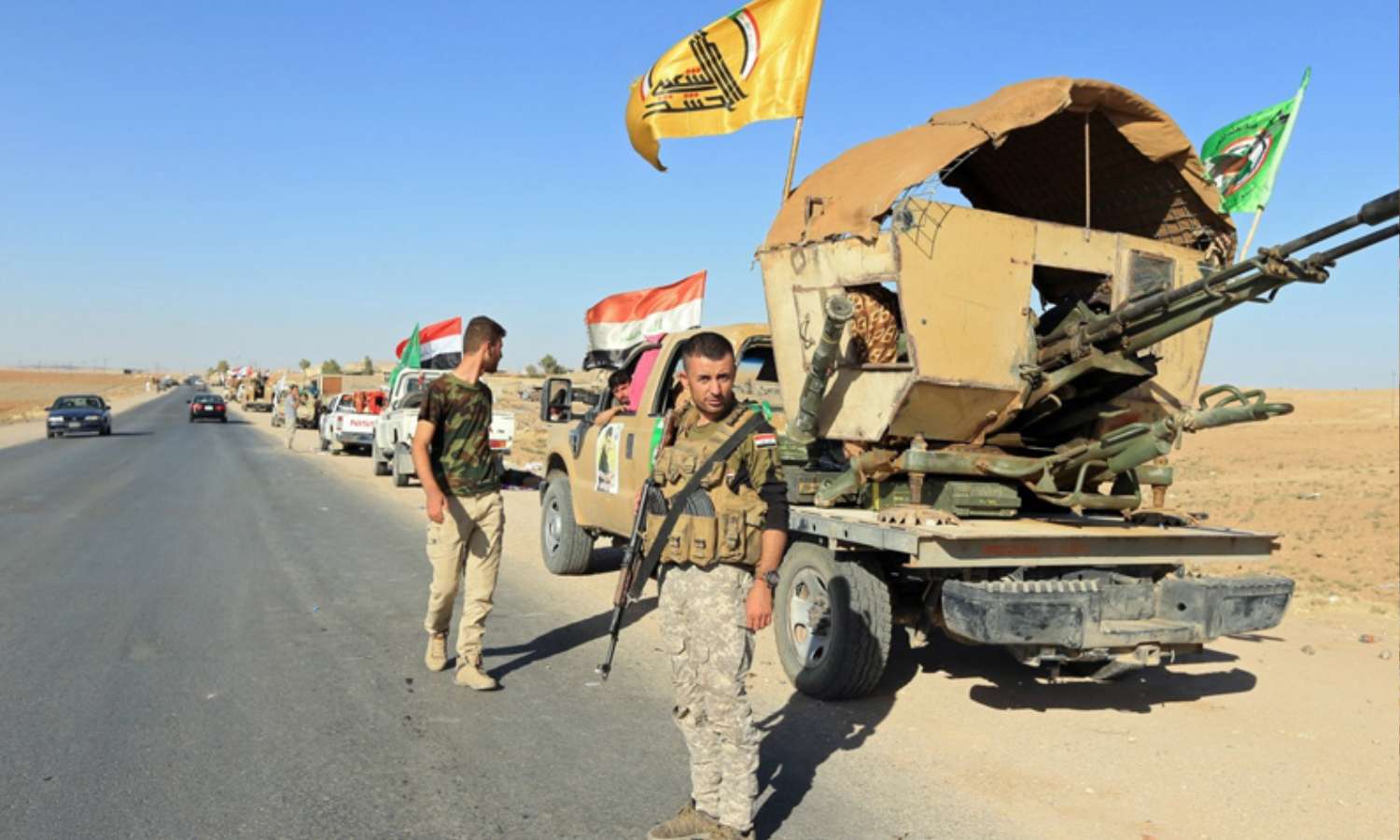
Israeli plans for any escalation against Iraq would begin with strikes on infrastructure and facilities, then move to targeted assassinations of figures within armed factions, Maariv reported.
Citing unnamed Israeli and U.S. intelligence officials, the paper added that Iran may increase its use of proxies in Iraq in response to Israeli wars on Lebanon and Gaza. Maariv also warned that there are fears Tehran has already smuggled short‑range ballistic missiles into Iraq in retaliation for the Israeli strikes inside Iran.
In early October 2024, the Israeli Occupation said two of its soldiers were killed and about 20 others wounded after a drone explosion in an attack launched from Iraqi territory against an Israeli base in the occupied Golan. The next day, Prime Minister Benjamin Netanyahu said 'Israel was defending itself on seven fronts, including the front against Shiite militias in Iraq.
On September 22, 2024, The Jerusalem Post warned Israeli authorities not to ignore threats emanating from Iraq and urged steps to secure “Israel.” The paper said Iraq had become a persistent source of threat to “Israel” since October 7, with Iraqi factions expanding rocket attacks toward the port of Eilat and several military bases.
On September 25, 2024, the Israeli Occupation threatened to respond to attacks from the armed factions. Army spokesman Daniel Hagari said, “We are closely monitoring the threats coming from Iraq and gathering intelligence […]. We will do what is necessary.”
Sources
- Iraq Rejects Israeli Threats and Factions Opt Against Escalation [Arabic]
- After Netanyahu’s Threat, Iraqi Factions Vacate Positions in Anticipation of Israeli Attacks [Arabic]
- Al-Fayyad Responds to Netanyahu’s Threats Against Iraqi Factions: ‘He crossed Red Lines; Iraq Has Means to Respond [Arabic]
- Trump Attacks Iran and Warns Its Proxies—Where Do Iraqi Factions Stand?
- Israel Threatens, Iraq Turns to the US: Is Baghdad at Risk of Strikes? [Arabic]
- Black in Color and Including Iraq: Netanyahu Waves the ‘Map of Curse’ at the United Nations [Arabic]
- After Backing It Against ‘Israel,’ Will Iran 'Pull Back' from Arab Lands?



